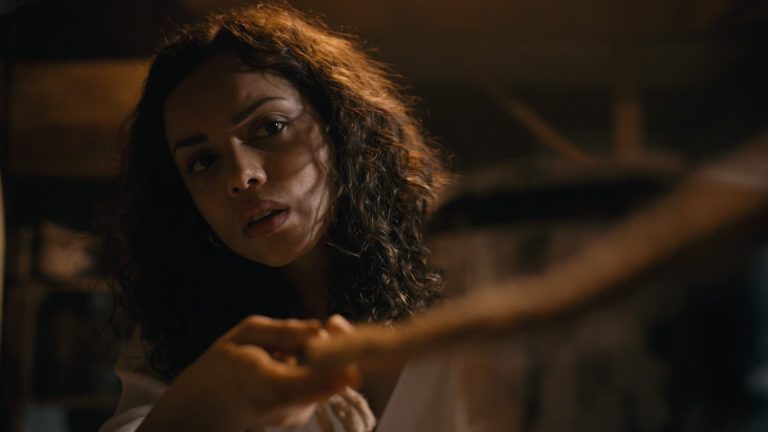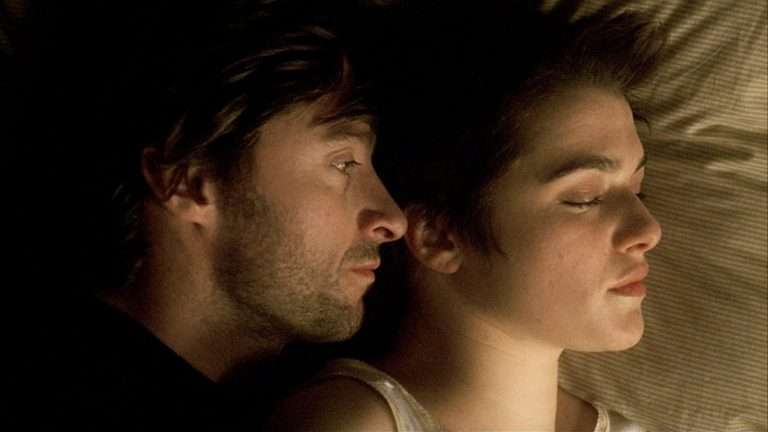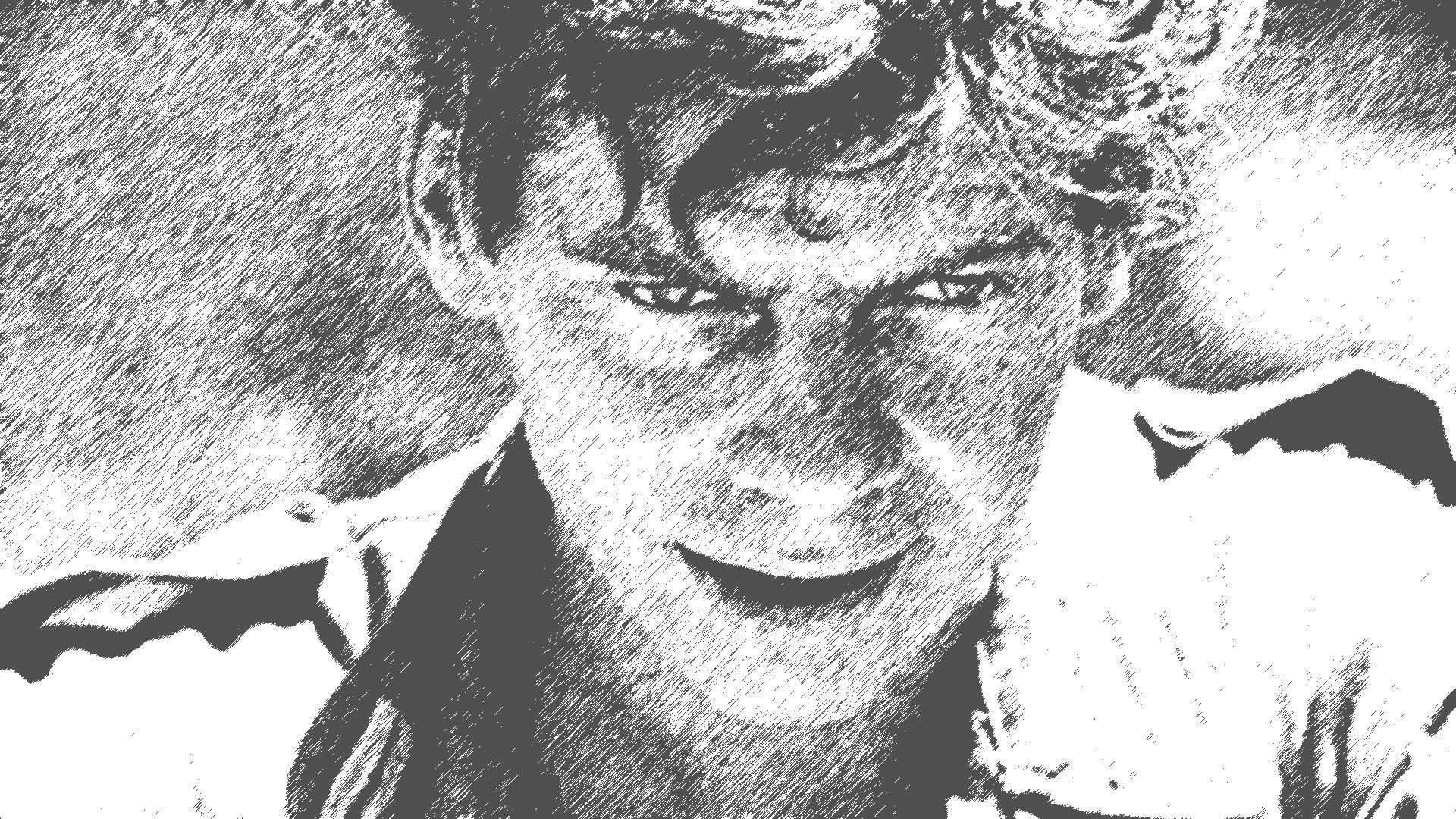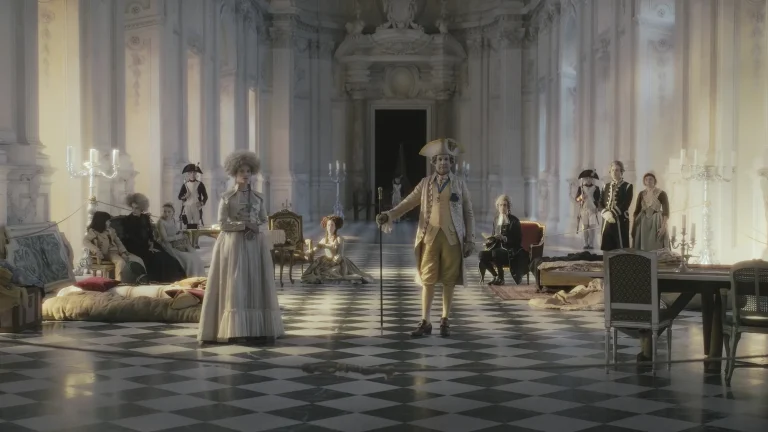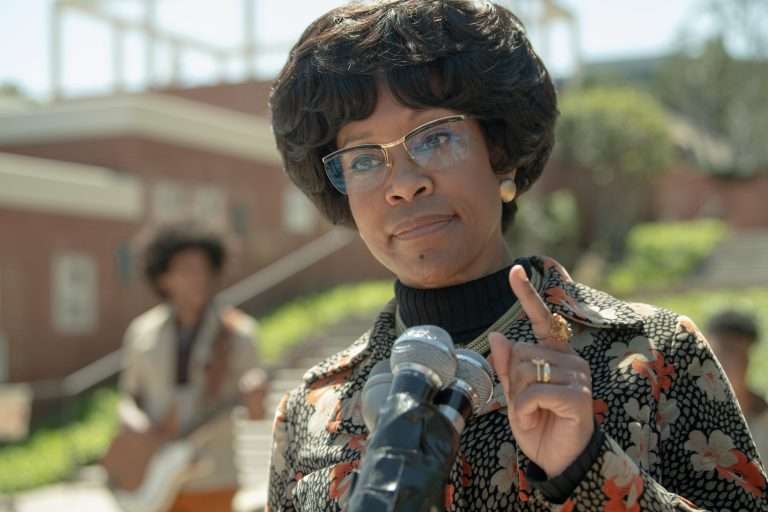What sets Alfonso Cuaron’s “Children of Men” (2006) apart from other futuristic dystopian films is its immersive world, which at times feels like a premonition of an impending future. It accomplishes this by saturating every scene with images we are all too familiar with – those of homelessness, poverty, terrorist bombings, pollution, urban decay, stranded immigrants, and large-scale protests. The writing then magnifies them to create a portrait of a society on the brink of collapse.
It’s not just the visuals but even the news you hear on the radio and the advertisements that are on some television in the background are meticulously thought out. It’s said that after 9/11, Cuarón traveled the world, including a visit to Ground Zero in New York City shortly after the attacks, capturing images of protests, and migrant camps, and speaking with people from all walks of life. Watching “Children of Men,” I have to say, all of that certainly paid off.
It’s prudent that Alfonso Cuarón doesn’t spend much time focusing on futuristic tech or the reasons behind mass infertility that have led to humanity’s decline. Instead, he chooses to focus on how everyone including our main characters grapples with living in this bleak hopeless world – a world where people try to go on with their daily lives while knowing humanity has no future. Especially since the premise of this movie poses a unique dilemma: unlike most dystopian sci-fi movies there isn’t an “enemy” in this world whose defeat can secure our future. No sentient AI, No invading aliens, or some oppressive government that humanity could unite and fight against. Yes, the U.K. is ruled by some authoritarian regime in this movie but their defeat isn’t going to save humanity. With no ability to procreate, they are left without a future worth fighting for.
“Children of Men” opens with news reports about the murder of the world’s youngest person, who, as we learn, was stabbed in Buenos Aires after refusing to give an autograph. We follow Theo Faron (played by Clive Owen) as he watches the news in a cafe and then leaves with his coffee before stopping nearby to mix some alcohol into his coffee. Within seconds a terrorist attack destroys the cafe. It’s a stunning sequence and establishes two techniques that Cuarón would repeatedly utilize to great effect throughout the film: 1) The long take and 2) The tendency of the camera to shift focus away from our main characters and investigate what’s in the background and the periphery of each scene.
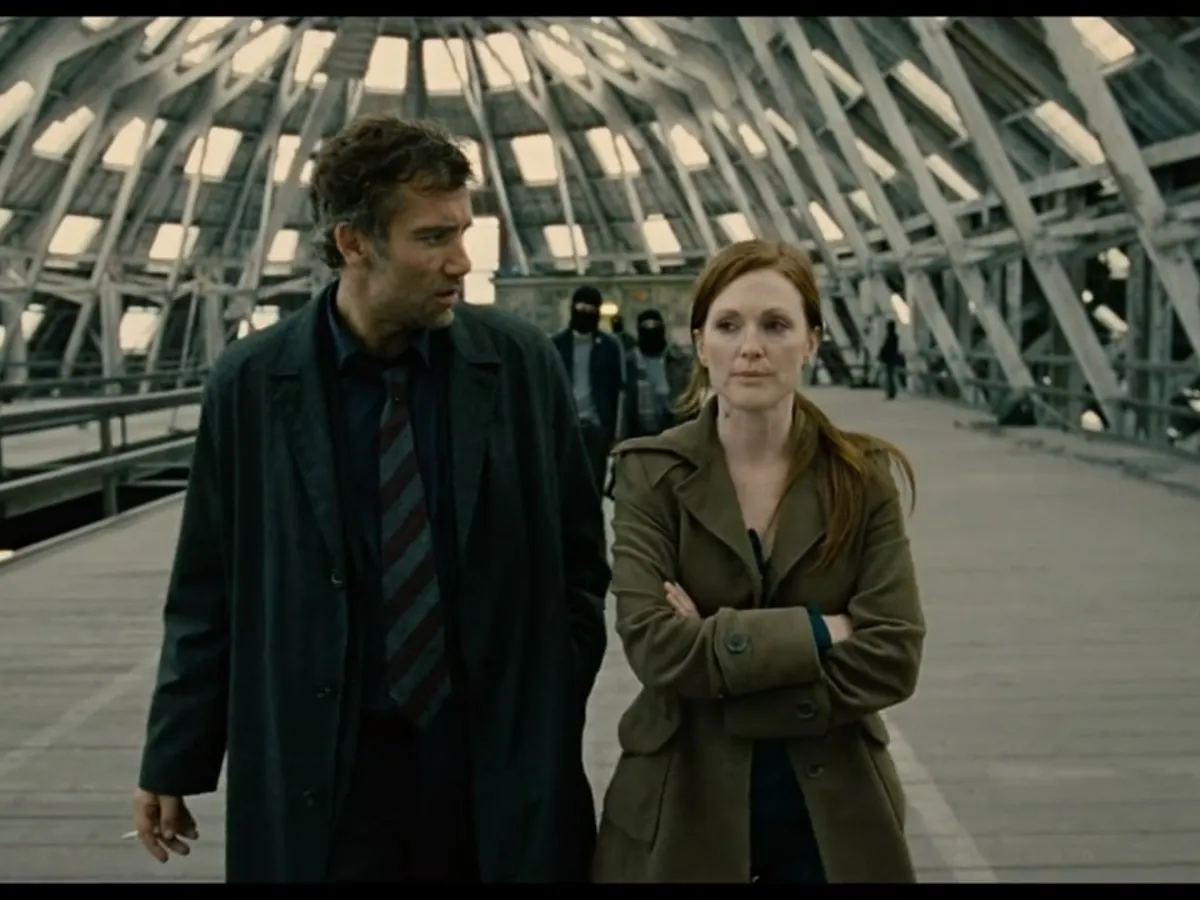
Both these elements provide a documentary feel to the whole narrative. What’s more interesting though is what happens after the attack. To our surprise, Theo still goes to work and notices that even his co-workers are distraught over the death of the world’s youngest person referred to as ‘Baby Diego.’ Then Theo does something even more peculiar. He requests a day off, claiming Baby Diego’s death affected him more than he expected, and his request is granted. This moment shows us just how dire things have become in Britain, where terrorism is so routine that it’s no longer a valid excuse to miss work. The narrative is filled with little details like this mostly revealed through things happening in the background or periphery. Look at what we can learn by simply paying attention to the ads that are shown in the background and on the radio:
- Just like with Baby Diego people become a lot more emotionally invested in things that can act as a substitute for having kids. Pets in particular have become even more cherished. You often see shops and ads for clothes that are specifically for cats and dogs.
- For people who just want to numb the pain, there are ads for drugs like Bliss. “Happiness in a pill”, the ad says.
- Then for those who have entirely given up, we see ads for a suicide drug called Quietus. This seems to be the most popular as we see the most ads for this.
- We also see lots of anti-immigrant propaganda. As Britain seems to be one of the few stable countries remaining, it seems to attract a lot of immigrants which obviously doesn’t sit well with a lot of people.
Theo like many others in the world has given up on life. He’s become cynical and apathetic, choosing to shut himself off from the rest of the world. He just wants to drink to numb the pain and be left alone. As one might expect the central narrative arc is about Theo being shaken out of this apathy and regaining his purpose in life. This happens when he’s kidnapped by a rebel group fighting for immigrant rights, headed by his ex-lover Julian Taylor (Julianne Moore).
We learn that the couple lost their baby due to the disease which would explain Theo’s cynical attitude. It’s here we meet Kee (Clare-Hope Ashitey) who is later revealed to be miraculously pregnant. Later, we also learn that the rebel group’s plan for Kee is going to put her and the child in massive danger. Thus, our protagonist is now forced to get Kee to a haven while avoiding danger from both the rebels and the government.
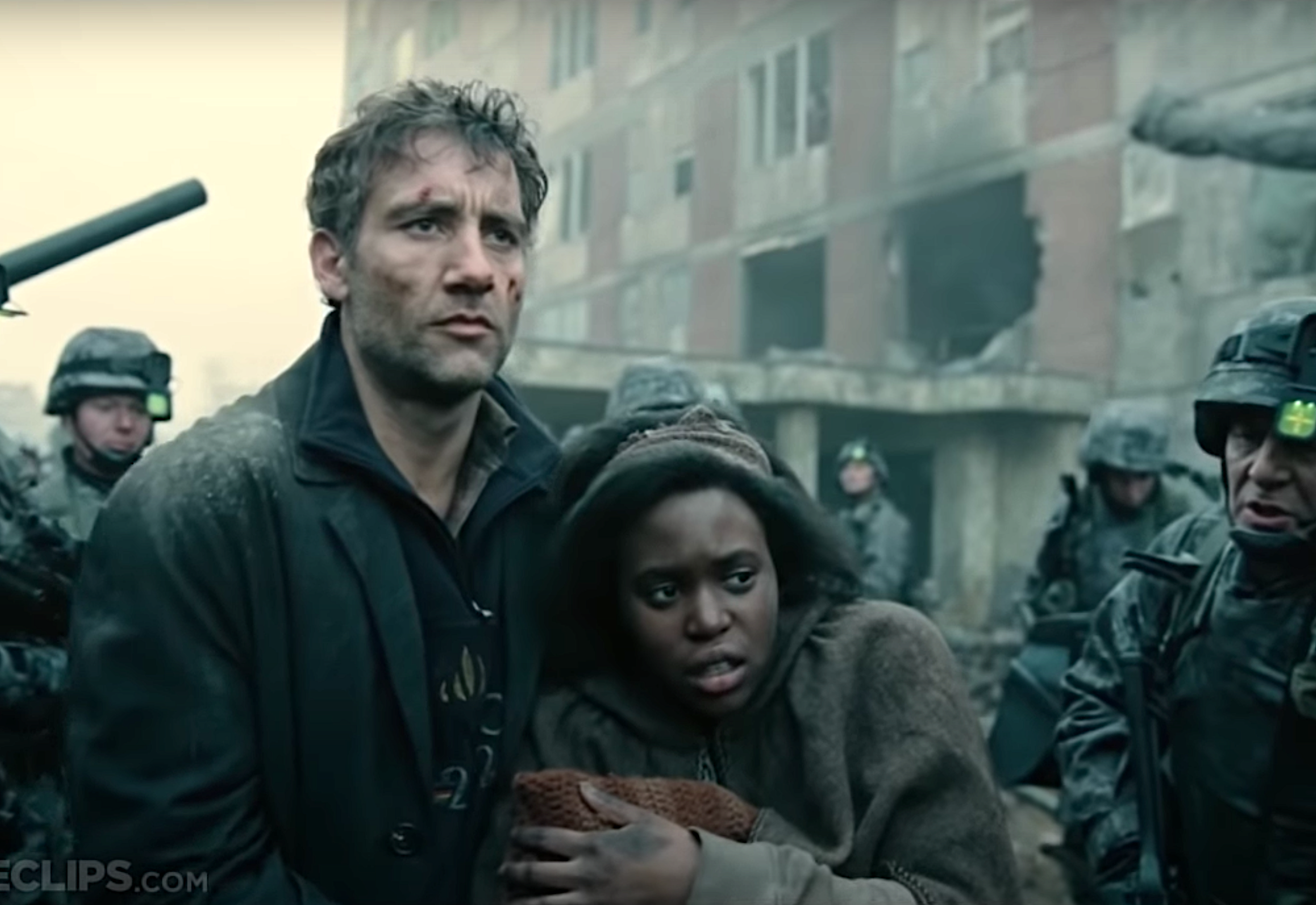
The story is fairly predictable—not bad, but simply adequate. Theo’s character arc of going from apathetic and cynical to caring about life is well done. I’m sure I wasn’t the only one who predicted that Theo’s cigarettes and alcohol would come into play in the climactic child delivery scene. Clive Owen’s stellar performance certainly helps you root for Theo on his journey, despite the character being a jaded mid-level bureaucrat. Still, the world he inhabits is more interesting than the story itself.
One can’t talk about “Children of Men” without mentioning its long takes (and ones that give the illusion of a long take) of which this film has many. While I enjoyed the one involving the chase scene like most people, I found the cease-fire scene to be the most memorable. One of the aspects I appreciated was the way the camera would capture events in the periphery of a scene, such as immigrants in cages, homeless individuals living in squalor, and a mother cradling her deceased son after an explosion. It’s as though the movie is confronting the audience and asking, “All of this is happening in real life as well, are you paying attention to them?”
I’ve always found it strange that so many people laud “Children of Men” for its prophetic portrayal of various societal issues. As I said in the beginning the movie only magnifies problems that have been plaguing humanity for a long time, It’s just that you’ve only now started paying attention to them.

![Best Sellers [2021] Review – An Incoherent, Expletive-laden Road Trip Movie](https://79468c92.delivery.rocketcdn.me/wp-content/uploads/2021/09/BEST-SELLERS-3-768x512.jpg)
